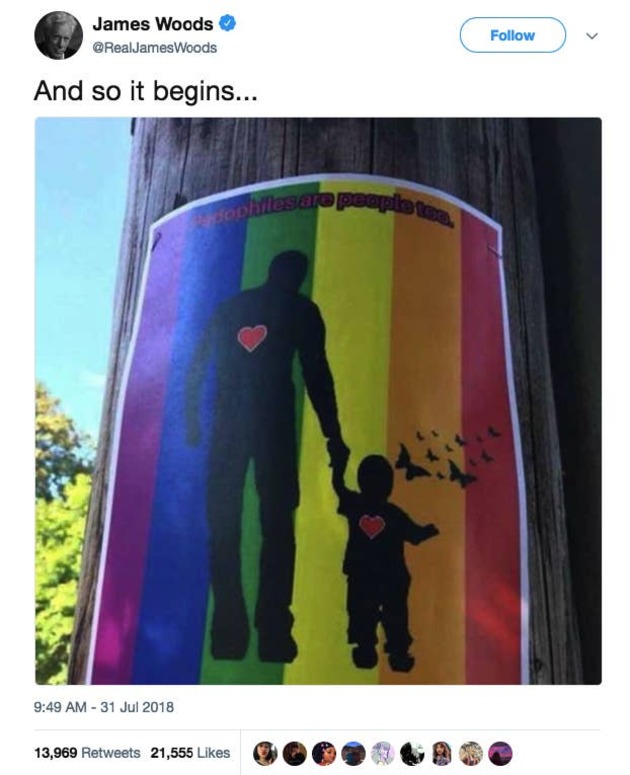How can businesses address online trolling and hate speech
By Adrien Gaubert,
Co-founder at myGwork
A new recently released movie called the “Hunt” with Hilary Swank describes precisely online trolls and the impact the internet can have on someone’s careers. No matter the lies that lay behind online rumours, once they enter the feedback loop, there is no stopping the damage they can do.
Jan Loff explains in old Norse traditions ‘trolls are beings who often dwell in isolated rocks, mountains, or caves, but they also live together in small family units, and are rarely helpful to human beings.’ This is in fact an accurate description of online trolls that hide behind their computers, surrounded by the darkness of their mind and the lunacy of their keyboard.
Online trolls can cause damage to someone's life, including destroying one’s business reputation. As with every nuisance, it is vital for society to hold them accountable, so they do not get to harm anyone else. The issue with a completely deregulated internet is that people’s actions cannot be traceable and therefore anonymity creates a comfortable place for trolls to pursue their abuses. The question is what is the responsibility of social networks and blog owners - should they not be stepping in and lifting the anonymity that protects these perpetrators? If not, the consequences can be dire, with desperate victims even pushed to suicide.
Many trolls are smart enough to know they need to stay hidden, yet some will still become reckless and perpetuate their abuse in bright daylight, with their name and details on show. However, unless you’re the President of The United States of America, you may want to be careful, as the internet community also have white knights ready to protect those who need it.

Who are the online trolls and what do they seek?
Online trolls may often be suffering themselves, and at times there will be very little you can do other than blocking them and ensuring your followers don’t read and digest their comments. It is important to act with empathy and calmness, ensuring you do not fire back.
Trolls can also be cruel, perhaps bored in their own life and using this as a medium to pass the time. These are the hardest to get rid of, but again, blocking and reporting them is the best thing one can do.
There are also individuals that believe everything they read on the internet and decide to go on a crusade journey against what they believe to be untruthful. At myGwork we have a lot of them on our social pages: they usually ask us to ‘repent our sins’ or more to the point that “we are going to burn in hell”. If you block these people, they generally won't come back and will find somewhere else to preach.
The last category are revengeful people that will use anything they have in their possession to destroy your image. Here, the motivation is different, they may have personal and political motivations, or in some cases may even be paid by your competitors to spread lies and hateful things about your business. If you are not President Macron and do not have an army of media experts to defend your image, then you need to at least have stakeholders in your business that you can turn to. What you're asking them may be as simple as leaving a nice review about your organisations, at the end of the day your partners and customers are your best ambassadors.
Minorities: Trolls’ favourite targets
This specific form of hate is often targeted at celebrities or those in the public eye. In these instances, it may include relaying (with great pleasure) dirty gossip taken from tabloids or other non-reliable sources. Here, we must ask who should be sanctioned? We’ve seen celebrities come out about their sexuality, only after being blackmailed by trolls and feeling they have no other choice. Both Gareth Thomas and Conchita West were recently blackmailed into revealing their HIV status and although we know that people living with HIV can now live long healthy lives and that if they are on effective treatment they are not at risk of passing on the virus, it is still something that is deeply personal and is the individuals choice to disclose. LGBT+ people, alongside other minorities are constantly bullied online, and the trolls’ favourite playgrounds include news outlets where they spread their hates and lies. An edifying example of this is the relay of fakes news about the LGBT+ community adding at “P” to our acronym for ‘paedophile’. The amount of time this was shared is scandalous and no matter what is said to rebuttal it, some people will believe it is true.

How to fight back
If you have an LGBT+ business and are vocal about it, hateful hackers will likely target your website. Emma Cusdin from Global Butterflies, an organisation that offers trans inclusive training to organisations, has witnessed “recurrent attacks from a certain part of the world”. They’ve said they were lucky to solve the issues quickly thanks to the IT skills of Rachel Reese - Emma’s co-founder- and thanks to their amazing software developers. However, the fact that they have faced this in the first place is unacceptable. They should be able to focus their skills and time on the life-changing work they do, not defending themselves from trolls.
If you hold a list of LGBT+ clients, it is of your duty to protect their anonymity. Use several password barriers and do not give access to anyone in your team before you make sure their contract includes an NDA.
Use settings on your social media channels to limit hate speech, these can be set to automatically delete comments with certain words or phrases. Trolls are smart, so they have ways around this firewall, such as changing spelling, so be vigilant and regularly check your social pages and blogs. Remember, this will keep your audience and followers safe and protect them from reading hateful content. Again, it is vital to report and block anyone who is spreading hate.
Speak up about what is going on and who is trolling you. Publish the hateful comments you receive and although some may respond with “this does not happen in 2020, this is a fake news, LGBT+ people are not bullied anymore”, others will believe you and rally support for our community. Our community has a central duty in supporting all minorities and that means do not relay fake news and hateful speech intended to break unity between us.
Lastly, if you have any kind of business and want it to stay successful be very careful with your intimacy, as sharing private content may well be giving to the devil the cord that will hang you and the trolls will be plenty part in your agony.
You can contact [email protected] if you are experiencing any form of bullying on and offline.
You can also find here a list of organisations that also supporting individual victims of online trolling.

